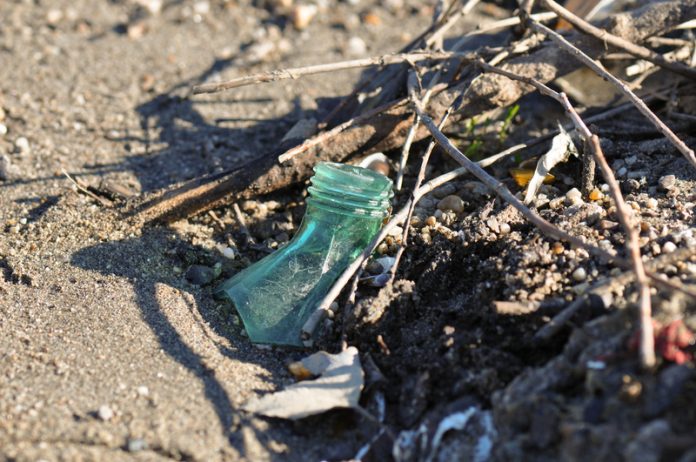Samantha Harding, Litter Programme Director at the Campaign to Protect Rural England reveals her views on moving towards a deposit return system in the UK for bottles and cans, to crack down on plastic pollution
In March 2018, the UK Government announced that a deposit return system for bottles and cans will be introduced in England. This is a significant and positive step, as evidence from the 38 schemes that currently operate around the world shows that a well-designed deposit system will deliver some clear benefits.
It will significantly and rapidly increase the number of containers we collect for recycling – within two years Lithuania’s system reached over 90% of bottles and cans being returned – and radically improve the quality of what’s collected, as the glass, aluminium and plastic containers are separated at the point of collection. This creates a more efficient and cost-effective ‘closed loop’ system, where cans and bottles can easily be turned back into more cans and bottles without having to use so many virgin materials.
As the return rates demonstrate, a small deposit incentivises people to return their containers, or collect those that have been littered by other people. In all the countries and states that already have a deposit system, the growing popularity of the schemes has made the once ubiquitous sight of large, garish containers spoiling the view a thing of the past.
The retailers who host return points report that there are no adverse effects for them – if anything it can increase sales by increasing footfall, as people come to use the reverse vending machines used to collect the containers.
And the system will create jobs – a welcome benefit in any economy.
Despite these clear benefits, implementing a deposit system will be complex and there will need to be quite a lot of adjustment by several key sectors. One of those directly affected is local government, which currently collects bottles and cans by emptying street bins, litter picking or via kerbside collections.
Much of what’s collected from bins or as litter is sent either to landfill or incineration, meaning those valuable materials are lost forever. Plus, we’re running out of landfill and anyone committed to resource efficiency knows that incineration should be the option of last resort. It’s also a costly business, as in England we spend nearly £800 million every year on street cleansing alone.
In terms of kerbside recycling, legislation to encourage this has been introduced in a piecemeal way over the past 20 years and local councils have had to adapt as they go, meaning we have as many collection systems as we do local councils. The costs associated with delivering a kerbside service are high, but despite this investment, the quality of materials collected can be poor as they’re often co-mingled with other packaging, resulting in contamination. Overall, the amount of packaging collected via the kerbside has slowed to a halt and there’s a consensus that we need an updated approach that builds on people’s willingness to ‘do the right thing’.
Essentially the existing system can’t stay exactly as it is now. Drinks containers are high in volume, taking up a lot of space and filling trucks more quickly than other types of packaging. By removing drinks containers from kerbside systems, local councils can reconfigure their service, making space to collect materials they’re currently not able to and potentially reducing costs.
Research focusing on both English and Scottish kerbside systems has shown that, even though local councils will lose some revenue from the sale of the glass, aluminium and plastic, the overall costs of managing their service will reduce. This research is borne out by 21 other independent studies from around the world, all of which had the same ultimate finding – a deposit return system will deliver cost savings for local councils.
With the Scottish Government having committed to a deposit system in September 2017, the push is now for a UK-wide system, with a deposit system running alongside a revamped kerbside system. To be an effective modern system, the deposit scheme will need to be designed with some key principles at its heart. It should cover all materials – glass, aluminium and plastic – and any new products should automatically be included.
There should be the maximum number of retail-based return points, so it’s easy for people to use. And it should be mandatory, as a voluntary scheme simply wouldn’t work.
Ultimately, local councils will benefit hugely from a deposit return system, while our streets and countryside will be free of unsightly bottles and cans.
Samantha Harding
Litter Programme Director
Campaign to Protect Rural England
Tel: +44 (0)20 7981 2800











